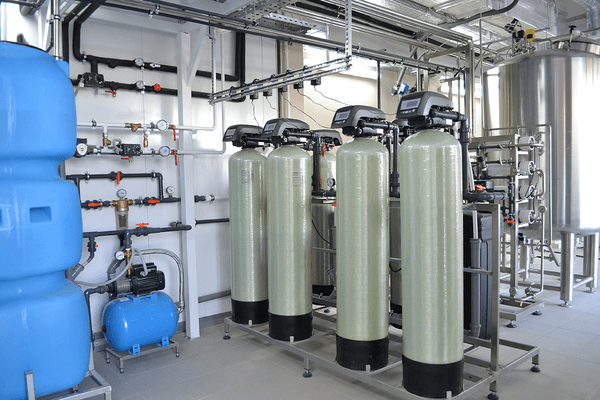
Industrial Water Treatment Systems: Improving Water Quality and Greener Industrial Operations
Manufacturing processes often require significant amounts of water for various purposes, including production, cooling and cleaning. However, this water can be contaminated with pollutants and chemicals, creating environmental risks and regulatory issues. Industrial water treatment systems, including water treatment systems, reverse osmosis plants and wastewater treatment plants, play an important role in managing and treating industrial wastewater, ensuring compliance with environmental regulations and promoting sustainable use of water resources. In this article, we'll look at the features, benefits, and applications of these critical systems in industrial water management.
1. Water purification systems:
Water purification systems are designed to remove contaminants and dissolved solids from water, producing high-quality water suitable for industrial processes and consumption. Key characteristics and applications of water purification systems include:
- Filtration Technologies: Water treatment systems use various filtration technologies such as activated carbon filters, multimedia filters, and membrane filtration (e.g., microfiltration, ultrafiltration) to remove suspended solids, organic matter, and microorganisms from water.
- Chemical Treatment: Some water treatment systems include chemical treatment processes such as chlorination, ozonation, and ultraviolet disinfection to disinfect water and eliminate pathogens, bacteria, and viruses.
- Deionization and demineralization: Ion exchange resins are used in deionization and demineralization processes to remove dissolved ions and minerals from water, producing ultrapure water suitable for sensitive industrial applications such as semiconductor manufacturing and pharmaceutical manufacturing.{24 }
2. Reverse osmosis (RO) units:
Reverse osmosis units use membrane filtration technology to remove dissolved salts, minerals, and contaminants from water by applying pressure to force water molecules through a semi-permeable membrane. Key features and benefits of reverse osmosis units include:
- Desalination: Reverse osmosis is widely used to desalinate brackish and seawater, produce fresh water for industrial processes, agricultural irrigation, and supply drinking water to coastal regions.
- Water recovery: Reverse osmosis plants can recover a significant portion of reclaimed water by concentrating salts and contaminants in the waste stream, increasing water efficiency and reducing wastewater generation.
- Compact and modular design: Modern reverse osmosis systems are available in compact and modular configurations, making them suitable for installation in confined spaces and mobile applications such as offshore platforms and remote industrial sites.
3. Wastewater treatment plants:
Water treatment plants (WWTPs) are large-scale facilities designed to treat and treat industrial wastewater before release to the environment or reuse for non-potable purposes. Key components and processes of wastewater treatment plants include:
- Pre-treatment: Screening and sedimentation processes remove large solids and debris from wastewater, preventing damage to downstream treatment equipment and processes.
- Biological treatment: Activated sludge, biological filters and settling tanks are used for biological treatment of organic contaminants, using microorganisms to break down organic matter and pollutants in wastewater.
- Chemical Treatment: Coagulation, flocculation and chemical precipitation processes are used to remove suspended solids, phosphorus, heavy metals and other contaminants from wastewater through chemical reactions and sedimentation.
Conclusion:
Industrial water treatment systems play a critical role in ensuring water quality, protecting the environment, and meeting regulatory requirements in production. By investing in advanced water treatment technologies and sustainable practices, businesses can minimize their environmental impact, conserve water resources, and reduce the risks associated with water pollution. As water scarcity and environmental challenges continue to worsen, implementing efficient and innovative water treatment solutions will become increasingly important for industries seeking to achieve sustainable water use and operational excellence.






